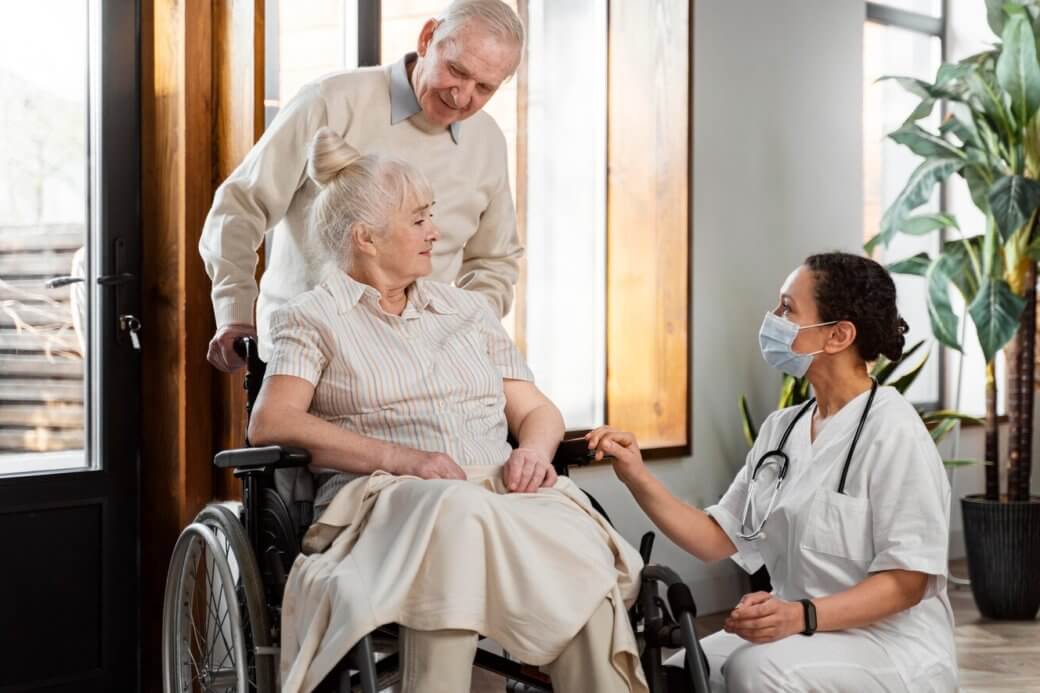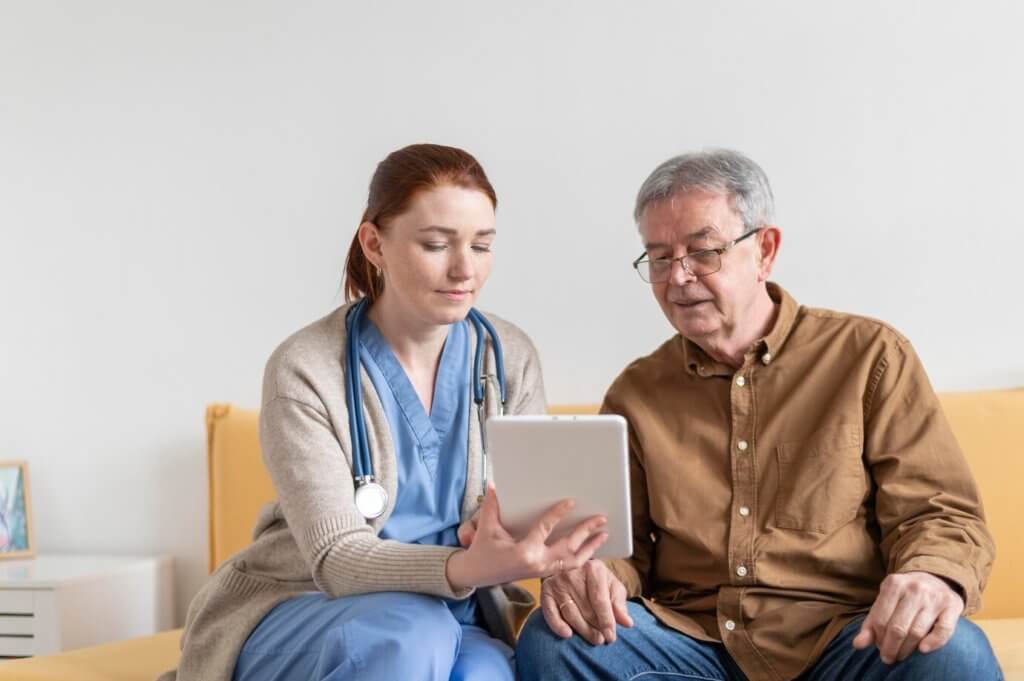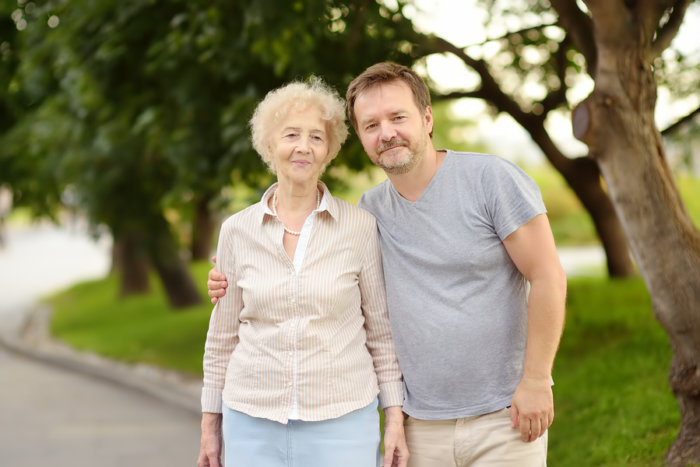Comprehensive Wellness Checks for Seniors’ Safety

As we age, maintaining good health becomes more than just a personal goal—it becomes a community responsibility. That’s why wellness checks for seniors are a crucial aspect of care in any senior living environment. These checks go beyond routine visits; they are foundational for catching health issues early, preserving independence, and offering peace of mind to families. At MD Senior Living, we see Routine Health Monitoring not just as a service but as a lifeline that supports physical, mental, and emotional wellness.
For many families, there is comfort in knowing that whether it’s a regular assessment or an Anonymous welfare check on elderly loved ones, senior care communities are proactive in ensuring safety and support. Let’s explore how our community upholds this commitment through comprehensive care and structured wellness programs.
Importance of Routine Wellness Checks
Wellness checks for seniors are essential because they help detect medical issues early and offer an opportunity for preventive care. At MD Senior Living, regular health assessments are a proactive measure that keeps both caregivers and family members informed. From vital sign monitoring to mental health screenings, these evaluations help reduce hospitalizations and enable better management of chronic diseases. They are also part of our Free wellness checks for seniors program, offering assessments without cost barriers for qualifying residents.
Moreover, integrating smart medication management into wellness routines ensures safety in medication usage, one of the most common sources of senior health complications.
Key Components of Health Monitoring
Five core components define effective Routine Health Monitoring in senior communities:
- Regular Physical Exams: Detect potential conditions early.
- Nutritional Assessments: Ensure a balanced diet.
- Cognitive Evaluations: Monitor brain function and memory.
- Personalized Care Plans: Address specific medical histories and health risks.
- Community Engagement: Promote emotional well-being through social connection.
We also leverage technology, such as telehealth and wearable monitors, for real-time tracking of vital signs—another layer of protection for residents. Our commitment to physical and mental wellness reinforces our role as a trusted partner in care.
Tailored Care Plans for Individual Needs
Health is not one-size-fits-all, especially when it comes to senior care. Tailored care plans at MD Senior Living reflect this truth, accounting for every individual’s history, preferences, and evolving conditions. They include:
Individualized Health Assessments
These assessments ensure every resident’s unique medical needs are addressed. We incorporate full-body evaluations, cognitive screenings, and nutrition-based metrics as part of our senior wellness check questions to guide our interventions. This attention to detail builds trust and creates a sense of security within the community. Our focus is always on prevention and adaptation—hallmarks of a truly effective care plan. We also prioritize creating quality care environments to elevate daily living.
Personalized Nutrition Plans
Customized meals improve both physical and mental health. From managing diabetes to reducing the risk of hypertension, meal personalization makes a profound difference. Key considerations include:
- Cultural and dietary preferences
- Disease-specific nutrition strategies
- Regular adjustments based on updated assessments
With the help of nutritional assessments, we can refine these plans and better support residents’ energy levels and immune function.
Customized Activity Programs
Personalized activities reinforce mental sharpness and emotional fulfillment. Programs are designed around hobbies, mobility levels, and social needs. Whether it’s creative arts or gardening, these activities become anchors for self-expression and joy. A well-rounded care plan encourages both movement and mental stimulation—an essential balance in any wellness approach.
The Role of Physical Examinations
Routine physical exams are a primary way to conduct wellness checks for seniors. These exams provide an overall snapshot of a resident’s health, revealing trends or issues that may not be immediately apparent.
Importance of Vital Signs
Monitoring heart rate, blood pressure, and oxygen levels allows caregivers to detect early signs of illness. Establishing baselines is critical in tracking subtle changes. These vital signs form the backbone of every Police wellness check on elderly cases as well, where urgent evaluations are often needed.
Detecting Health Issues Early
Routine assessments make it possible to catch minor issues before they evolve into larger medical events. By prioritizing early intervention, we reduce hospital admissions and support more stable living environments. This is also where the value of anonymous welfare checks on elderly services comes in—protecting seniors who might otherwise go unnoticed.
Tailored Health Assessments
From mobility tests to memory exams, comprehensive evaluations help develop the most suitable care strategy for each resident. Our approach focuses on:
- Regular reviews of essential signs
- Nutrition-focused evaluations
- Emotional and cognitive screenings
- Health and wellness progress tracking
Nutritional Assessments for Optimal Health
Seniors often have unique dietary needs due to chronic conditions, medications, and lower energy levels. Nutritional assessments help caregivers prepare meals that nourish and heal.
| Nutrient | Importance |
| Protein | Maintains muscle mass |
| Calcium | Strengthens bones |
| Fiber | Promotes digestion |
| Vitamins A & C | Boost immune health |
| Omega-3s | Supports heart and brain function |
Regular evaluations help us identify whether additional supplements or dietary changes are needed, ultimately boosting residents’ well-being.
Cognitive Evaluations and Mental Health
Mental health matters just as much as physical health. Regular cognitive evaluations measure memory, mood, and brain function. At MD Senior Living, we tailor cognitive support activities to meet each person where they are, creating a personalized plan to stimulate their mind.
Components include:
- Memory recall tasks
- Emotional wellness assessments
- Social engagement initiatives
- Clinical screening tools
Our caregivers are trained to administer these senior wellness check questions with empathy and professionalism.
The Future of Health Monitoring in Senior Care
With advances in digital health, routine health monitoring is becoming more streamlined. Tools like telemedicine, mobile apps, and wearable devices ensure real-time data collection and access. These resources allow residents to feel empowered and caregivers to act quickly when needed.
Future trends to watch:
- AI-based fall detection systems
- Remote medication tracking
- Digital mental health platforms
This level of personalization leads to improved outcomes, reduced emergency incidents, and better resident satisfaction.
Creating a Culture of Safety and Support
Whether through a formal check-in or a police wellness check on elderly reports, a culture that encourages safety and vigilance can save lives. MD Senior Living partners with local services and offers free wellness checks for seniors, particularly for new residents or those identified as being at risk. These evaluations aren’t just medical—they address social isolation, emotional strain, and even environmental safety.
We recommend that community members educate themselves through organizations like the National Institute on Aging and resources such as AgingCare for tips on initiating wellness checks with loved ones.
A Lifeline of Care and Connection
In a world where seniors can sometimes fall through the cracks, wellness checks for seniors provide the connection and oversight that make aging safer and more dignified. At MD Senior Living, we treat every check as a lifeline—an opportunity to affirm our commitment to each resident’s vitality. Whether it’s answering Senior wellness check questions, adjusting a meal plan, or following up on a Police wellness check on an elderly report, our team remains vigilant and responsive.
To explore how we support your loved ones through compassionate care and routine health monitoring, call us at 480-418-9150 or schedule a visit today.
Discover a community where safety, connection, and well-being are a top priority.
Frequently Asked Questions
How to request a welfare check on an elderly person
To request a welfare check on an elderly person, contact your local police department’s non-emergency number. Provide the individual’s name, address, and any concerns about their well-being, such as not answering calls or missed appointments. The police will send an officer to the residence to ensure the person is safe and responsive. If there is cause for concern, emergency services may be involved to provide immediate assistance. It’s essential only to request a check when there is a valid concern about safety or health.
Does Medicare require a wellness check?
Medicare does not require a wellness check, but it does offer a free “Annual Wellness Visit” for eligible beneficiaries. This visit is available once every 12 months for individuals who have had Medicare Part B for over a year. The goal is preventive care—evaluating risks, reviewing medical history, and planning future health strategies. It’s optional, but encouraged, as it helps track and support long-term health. Seniors should consult their healthcare provider to schedule this visit and understand what is covered.
What triggers a wellness check?
Missed appointments, unreturned phone calls, changes in behavior, or concerns from neighbors or family may trigger a wellness check. It can be requested if someone believes an individual might be at risk, especially seniors living alone. Triggers can include sudden isolation, signs of neglect, or suspected health issues. Authorities will assess the situation and determine the appropriate response. It’s a tool for community safety, especially when someone may not be able to seek help themselves.
What is a wellness exam for seniors?
A wellness exam for seniors is a preventive health assessment designed to support long-term well-being. It includes reviewing medical history, checking vital signs, discussing cognitive health, and creating or updating a personalized health plan. These visits are covered annually under Medicare Part B and help catch potential health issues early. It’s different from a physical exam, as it focuses more on planning and prevention than diagnosing new problems. Seniors are encouraged to take advantage of this benefit for proactive care.
Are there services available to check on elderly people who live alone?
Yes, many communities offer services like phone reassurance programs, in-home caregiver visits, and welfare checks by local authorities. Nonprofits, senior centers, and local government agencies often provide or coordinate regular check-ins. Some private companies also offer remote monitoring and alert systems for older adults living alone. These services aim to ensure safety, reduce isolation, and provide peace of mind for families. Checking with a local Area Agency on Aging can help identify options in a specific region.






Leave a Comment